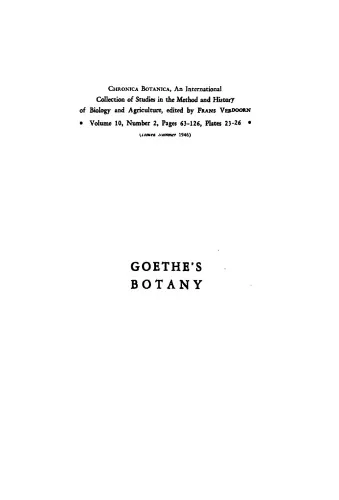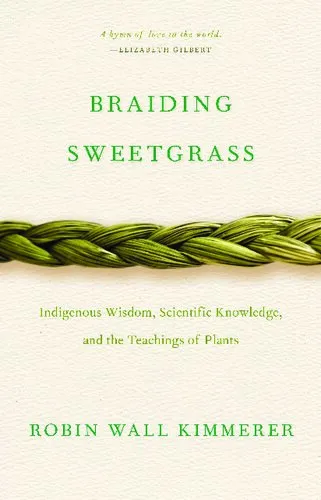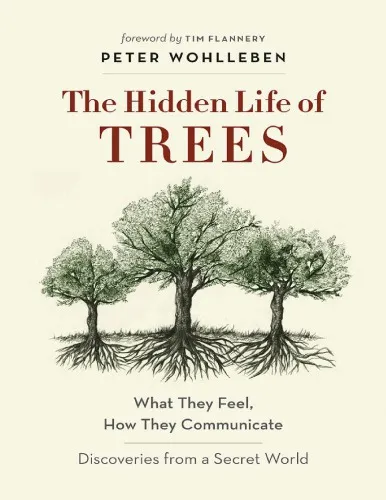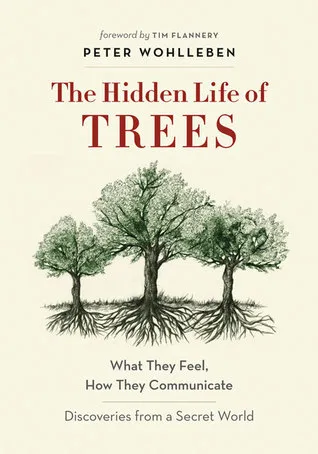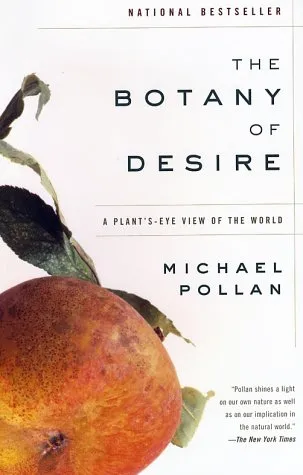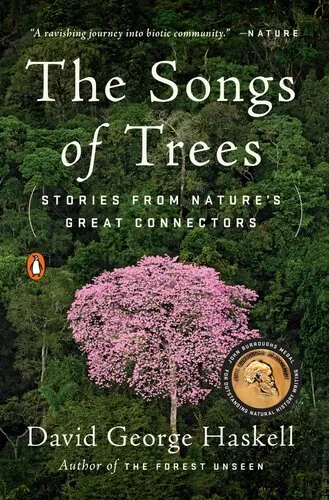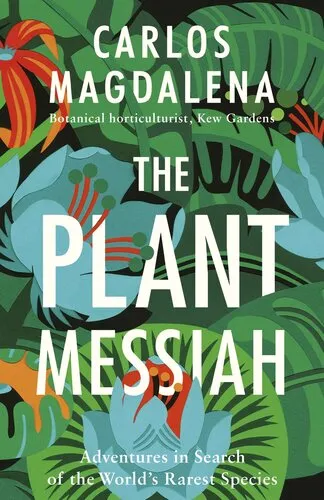Goethe's Botany: The Metamorphosis of Plants (1790) and Tobler's Ode to Nature (1782)
4.0
Reviews from our users

You Can Ask your questions from this book's AI after Login
Each download or ask from book AI costs 2 points. To earn more free points, please visit the Points Guide Page and complete some valuable actions.کتاب های مرتبط:
Introduction
In the late 18th century, Johann Wolfgang von Goethe, renowned playwright, novelist, and poet, ventured into the realm of natural sciences, offering profound insights into the world of botany. His work, "Goethe's Botany: The Metamorphosis of Plants (1790) and Tobler's Ode to Nature (1782)," is a testament to his curiosity and understanding of nature's intricate beauty. This book, a fusion of scientific observation and poetic reflection, explores the transformation and unity of plant life, while also celebrating nature through poetic expression.
Detailed Summary of the Book
The book is divided into two seminal works: "The Metamorphosis of Plants" and "Tobler's Ode to Nature." "The Metamorphosis of Plants" presents Goethe's botanical observations where he outlines his theory of plant metamorphosis. Across its pages, Goethe delves into how a single archetypal form, the 'Urpflanze,' serves as the blueprint for all plant forms. Through meticulous study and keen perception, he illustrates the fluid transformation of plant parts - from seed to bloom - showcasing a continuum of change governed by nature's inherent laws.
"Tobler's Ode to Nature," on the other hand, is a poetic homage to the splendor and diversity of the natural world. It reflects on human connection to nature and celebrates the universal spirit that pervades all living things. Together, these two works encapsulate Goethe's perspective on the natural world, blending scientific inquiry with artistic sensitivity.
Key Takeaways
- Interconnectedness of Nature: Both scientific and poetic narratives emphasize the interconnectedness and unity inherent in nature - an idea that significantly influenced later ecological and evolutionary studies.
- Transformation and Growth: Goethe's insights into the process of plant metamorphosis highlight the dynamic nature of life and growth, underscoring the adaptability and transformation observed in the botanical world.
- Integration of Science and Art: The book exemplifies how scientific exploration can be enriched by poetic insight, demonstrating a holistic approach to understanding the world around us.
Famous Quotes from the Book
"In this unfolding play of forms, we discern not only the rule of nature but also the breath of divinity, as if the divine breathed through it all."
"Nature is an ever-open book filled with wisdom, only asking us to read and marvel at each chapter it unfolds."
"The archetypal plant is the sum of all plants, past, present, and future, encapsulating the unending transformation within nature itself."
Why This Book Matters
Goethe's exploration into botany transcends the traditional boundaries of scientific literature. His work matters because it presents a radical shift in thought, introducing a deeply philosophical perspective to the study of plant life. By recognizing the intrinsic link between scientific pursuit and artistic expression, Goethe laid groundwork that would shape future scientific methodologies and ecological philosophies.
The themes encapsulated in "Goethe's Botany" resonate with contemporary discussions about sustainability and the importance of maintaining a harmonious relationship with the natural world. His reflections encourage a deeper appreciation for the complexity and beauty of life, urging readers to maintain curiosity and reverence for the myriad forms of existence surrounding them.
Free Direct Download
You Can Download this book after Login
Accessing books through legal platforms and public libraries not only supports the rights of authors and publishers but also contributes to the sustainability of reading culture. Before downloading, please take a moment to consider these options.
Find this book on other platforms:
WorldCat helps you find books in libraries worldwide.
See ratings, reviews, and discussions on Goodreads.
Find and buy rare or used books on AbeBooks.
1614
بازدید4.0
امتیاز0
نظر98%
رضایتReviews:
4.0
Based on 0 users review
Questions & Answers
Ask questions about this book or help others by answering
No questions yet. Be the first to ask!
